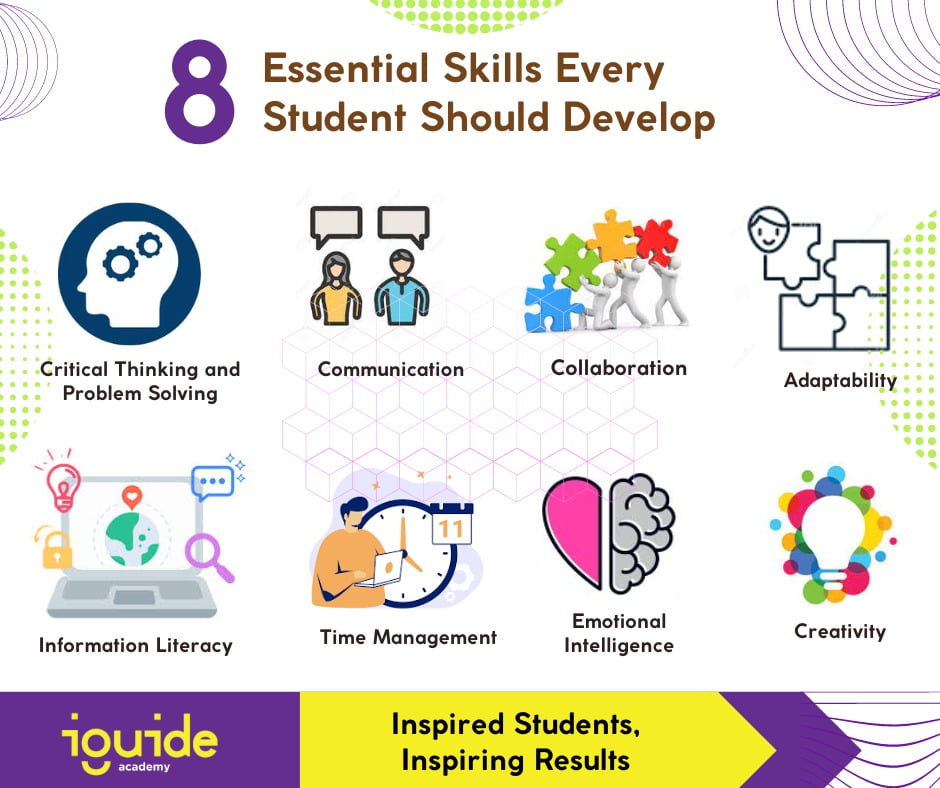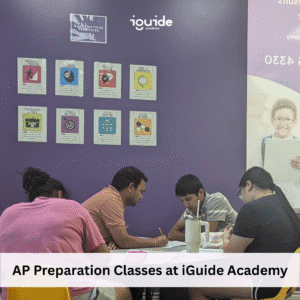Academic knowledge is no longer sufficient for success in this age of rapid change and shifting needs. For success, students must acquire a variety of skills that will enable them to adapt, collaborate, communicate effectively, and think critically. These transferrable skills go beyond the textbook content and lay the foundation for success and lifelong learning. In this blog, we will look at a number of essential skills for students that will not only enhance their academic achievement but also prepare them to meet the challenges of today’s world.
1) Critical Thinking and Problem-Solving
Promoting critical thinking in students enables them to analyze data, assess different viewpoints, and make wise decisions. Students should be encouraged to debate ideas and challenge assumptions. In addition, problem-solving exercises foster creativity, resourcefulness, and perseverance both in and out of the classroom.
2) Communication
Communication skills are vital in all aspects of life. Students should work to develop their written and oral communication skills. It is important for students to get practice speaking their minds clearly, listening intently, and having productive conversations. Moreover, nonverbal elements of good communication include body language, active listening, and presentation abilities. Participating in debates, presentations, and group discussions helps you develop confidence, empathy, and the ability to work efficiently.
3) Collaboration
Collaboration and Team work is a crucial skill that prepares students for the realities of the professional world. Students that work in groups are able to get insight from many viewpoints, grow empathically, and see the importance of group effort. It teaches individuals how to build on individual strengths, solve problems, and achieve common goals.
4) Adaptability
Adaptability and persistence are crucial characteristics in a dynamic society. We should encourage students to accept challenges, learn from failures, and adopt an optimistic outlook. Moreover, Students who have developed flexibility and resilience are better able to deal with stress, efficiently manage their time, and recover from failures. These abilities can be developed through promoting extracurricular activities, introducing students to unique circumstances, and offering chances for self-evaluation and goal-setting.
5) Information Literacy
In the digital age, students must be digitally literate in order to comprehend the tremendous amount of information available online. Students should be able to assess the trustworthiness and dependability of online sources, comprehend digital privacy and security, and successfully use technology for research, communication, and collaboration. Therefore, Educators should teach children about internet safety, online etiquette, and critical thinking about digital information.
6) Emotional Intelligence
Promoting a welcoming and inclusive classroom atmosphere helps students develop emotional intelligence. It also prepares them for successful personal and professional interactions. Therefore, students should be taught emotional management techniques, conflict resolution strategies, and good emotional communication.
7) Creativity and Innovation
Students’ ability to solve problems and think beyond the box is nurtured when creativity and innovative thinking are fostered. Consequently, It enables pupils to approach problems from new angles and find creative solutions.
At iGuide Academy, we go above and beyond to offer students individualized support and focused education that gives them the tools they need to develop the above essential skills for students. Our experienced teachers hence create an encouraging learning environment in which students can enhance their critical thinking skills, improve their communication skills, and collaborate effectively.






